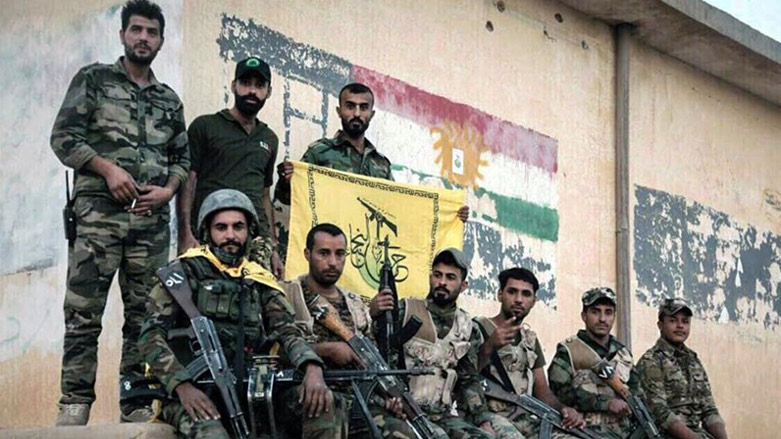US condemns Iran, but silent on its role in Iraq

WASHINGTON DC, United States (Kurdistan 24) – The Trump administration roundly condemned the Iranian regime on Tuesday. From President Donald Trump on down, US officials voiced their solidarity with the protestors on the sixth consecutive day of unrest.
“The people of Iran are finally acting against the brutal and corrupt Iranian regime,” Trump tweeted. “All of the money that President Obama so foolishly gave them went into terrorism and into their ‘pockets.’”
“The U.S. is watching!” he affirmed.
In New York, Nikki Haley, America’s UN ambassador, spoke similarly as she called for an emergency meeting of the Security Council and of the Human Rights Council in Geneva.
In Washington, Undersecretary of State for Public Diplomacy and Public Affairs Steve Goldstein, affirmed, "We want to encourage the protesters to continue to fight for what's right and to open up Iran.”
"We are still communicating with people in Iran on Facebook and Twitter, and we're constantly updating those two sites in Farsi,” he said, explaining that Iranians could access them through Virtual Private Networks despite the regime’s clamp-down on social media.
In Tuesday’s press briefing, State Department Spokesperson Heather Nauert, stressed the right of Iranians to demonstrate peacefully, while expressing great respect for their courage in defying the dictatorial regime.
She also stated that additional sanctions remain “among the range” of US options.
A New York Times report published Tuesday explained that the “initial catalyst” for the outburst of popular anger was a leak of Iran’s new budget from President Hassan Rouhani’s office.
“For the first time, secret parts of the budget” became public. “Iranians discovered that billions of dollars were going to hardline organizations, the military, the Islamic Revolutionary Guard Corps (IRGC), and religious foundations,” while they would suffer yet more economic hardship as the new budget will cut subsidies for millions of Iranians.
“Iran has spent billions of dollars abroad in recent years to extend its influence in Iraq, Syria, and Lebanon,” the Times stated.
In Tuesday’s briefing, Nauert criticized Iran’s activities in Syria and Yemen, as well as its support for Hezbollah in Lebanon.
However, when Kurdistan 24 asked for comment on a meeting held Monday in Baghdad between an envoy of Iran’s Supreme Leader Ayatollah Khamenei and Akram al-Kaabi, head of Harakat Hezbollah al-Nujaba, an Iranian-backed militia in Iraq, she was unaware of it, although the news had appeared in both the Iraqi and Iranian press (a follow-up e-mail to the Department, asking for comment that included links to the reports, went unanswered.)
Indeed, responding to a subsequent question from another journalist, Nauert named the countries where Iran’s activities were of concern to the US. However, Iraq was not among them.
Michael Pregent is now a scholar at the Hudson Institute. Earlier, he worked for Generals David Petraeus and Raymond Odierno in Iraq.
“Most Iraqis—regardless of sect—criticize Iran's involvement in Iraq,” Pregent told Kurdistan 24. “To leave Iraq out in this context is a terrible message to be sending to Iraqis and one that would make Qassem Soleimani (head of the IRGC’s al Quds Force) smile.”
Pregent also noted that the President’s recently released National Security Strategy stresses, “We will strengthen our long-term strategic partnership with Iraq as an independent state.”
“Independent means absent Iran's malign influence,” Pregent said, as he highlighted another sentence from that document. “We will work with partners to neutralize Iran’s malign activities in the region.”
“This includes what Iran is doing in Iraq,” Pregent added.
Entifadh Qanbar, an Iraqi-American and President of the Future Foundation in Washington, advised Kurdistan 24 that the “pillar” of America’s anti-Iran policy in Iraq is reliance on Prime Minister Haider al-Abadi.
However, the basic premises of that policy are “false,” as Abadi cannot act independently of Iran, Qanbar said.
Editing by Nadia Riva
